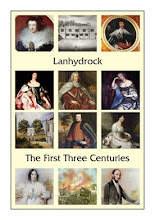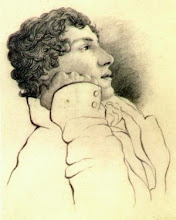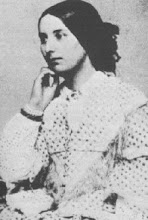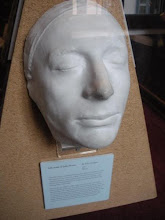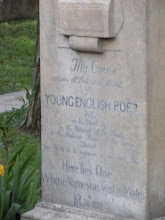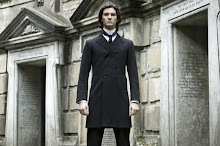
LEANNA HIEBER has so graciously given us insight into her writing process for the fabulous novel: "THE STRANGELY BEAUTIFUL TALE OF MISS PERCY PARKER". We thank her for her generosity of time and spirit.
"These are awesome questions and they were great fun to answer. Blessings!
Question #1.) How do you go about creating such great ambience? Do you listen to any certain music when you write? What things put you in the mood to write such eerie scenes in Victorian London?
Leanna: I write as if I’m a cinematographer. I adore ‘setting the stage’ – that’s where my theatrical background seems to shine, and the more mysterious the stage, the better. It’s my favourite part. Nothing compels me more, titillates me more or has me literally itching to write than dreaming up an eerie, moonlit scene with an edge of danger and the possibility of romance. Some of my earliest memories are of telling ghost stories, so it’s just in my blood, a particular style of storytelling I’ve always been drawn to. 19th Century Gothic novels have always called to me, like a siren, luring me towards their atmospheric shadows that are so resonant to my interests. I do like to listen to film scores while I write (Particularly melodic Philip Glass scores) and rich, contemporary classical music that was the “pop” music of Victorian times and slightly later, imagining it played from a faintly hissing phonograph. I particularly love Chopin, Tchaikovsky, R. Vaughan Williams and Dvorak.
Question #2.) How do you feel about people comparing Alexi to Professor Snape?
Leanna: Snape is, in my opinion, one of the most interesting and compelling characters ever written. He’s definitely and quite clearly influenced my Alexi, as has Mr. Darcy, and every stoic, brooding historic and Gothic hero. Alexi is all my literary love affairs wrapped up into one hero. And I’d never deny that Severus Snape is one of my foremost literary love affairs.
Question #3.) It says on your website that it took 9 years and many rewrites for Miss Percy to find her way to print. How was the original story different than what we read today?
Leanna: Originally I’d included a great deal of back-story and scenes from Percy’s convent childhood. The story wasn’t nearly as tight, the action not nearly as knitted together. It was far more vague in the revelation of prophecy and even the talents of the Guard. I credit my agent and editor for helping me adjust simple and structural choices to draw action forward in the book and push things along in a more consistently unfolding way. Once they pinpointed it, I knew they were right, I just needed those outside, professional eyes. My Editor: “We need to learn about what the Guard does earlier on in the story.” Me: “Well, how about making the Exorcism Chapter Two?” Editor: “Great. And Prophecy. Much earlier.” Me: “How about the prologue?” Editor: “Awesome.” And there you have it, give or take a few edits.
Question #4.) What do you think it was that finally tipped the agents/publishing world in your favor? After 9 years, why did they finally see the light?
Leanna: Perhaps the most significant factor was my agent changing my boring working title into The Incredibly Long Yet Descriptive Title that it is now. It was the descriptive nature of The Strangely Beautiful Tale of Miss Percy Parker that got my editor’s attention. This title navigates the cross-genre nature of this book, and that was the critical tipping point, to find a publisher who was not scared of the cross-genre nature but rather an editor and house that would celebrate it as such, as Dorchester does. Plus, Dark / Gothic Victorian Paranormal / Fantasy is pretty “in” right now. Didn’t know or care about that when I started the love-affair that is this book, but it sure is handy now.
Question #5.) What was the inspiration behind Percy as an albino?
Leanna: She appeared to me just as she is; a vision, of sorts, much like the kind I’ve granted Percy. The idea of a girl who looks like a ghost, can relate to ghosts and yet isn’t a ghost was so fascinating to me; a girl caught in both worlds, the very threshold of living and dead embodied in one sweet young lady … A girl who could go into the spirit world and pass for dead… Oh, wait, I’m getting ahead of myself, that’s book two… *s*
Question #6.) Why Jack the Ripper? He's barely in it at all and has nothing to do with the plot? Red Herring?
Leanna: I couldn’t write about Victorian England without including a bit of “Jack”. I was putting in so many real London haunts (all my ghosts, save the ones on Athens’ grounds, are real, documented London haunts) that I had to give Jack the Ripper a sidebar, and a paranormal explanation. He is, in his way, integral to the plot because the Guard is now aware that a different game is afoot, there are things they’ve never faced that are now on the loose. Without “Jack” there wouldn’t be a looming threat, nor an indicator of Prophetic things that remain in control of other-worldly/divine power and intervention. The Greek Mythological tie-in fell into place and it just felt right. It would be hard to throw in mentions of characters who deal with the “Underworld” without the reference to the particular creature that “Jack” proves to be.
Question #7.) What inspired you to mix Victorian England with Greek Mythology?
Leanna: They’re two of my great loves, and they’re a great fit as the Victorians were celebrating a renaissance of classical themes during their era, a neo-classical period of great intensity. Bulfinch wrote his great treatises on Greek Mythology at this time and so between that neo-classicism and the burgeoning interest in spiritualism, the main themes of my story were already laden in the Victorian consciousness.
Question #8.) What is the most significant change you've seen in your life now that you are an author?
Leanna: I’m busier than I’ve ever been in my whole life. There just aren’t enough hours in the day. But I’ve never been so happy to be an artist as I am now, I feel so lucky and blessed to have the opportunity to do what I love more than anything in the world and get paid for it. With many artistic interests, I’m feeling more at peace with being a novelist than at any other time in my artistic career, which means I’ve really found the one love that trumps all; my books.
Question #9.) Were you able to travel back to England for research?
Leanna: Yes, blessedly. I was there during college on a research scholarship involving Shakespeare and classical theatre. And a return trip was for personal research on many different writing projects, with Miss Percy most prominently in my mind and heart. And I can’t wait to go back for more.
Question #10.) Will the sequels continue to focus on Percy and Alexi or will Rebecca and Michael be in the spotlight?
Leanna: Book II will pick up exactly where Book I leaves off, with Percy and Alexi remaining in the main focus, but with more insights into the Guard as well. As it currently stands, Rebecca and Michael are slated to have their own novella, in which I grant them well-deserved starring roles. At the moment this novella is scheduled to release in a Fantasy Christmas anthology October 2010.
Question #11.) You are an incredibly artist in many fields. How do you organize your time to write as well as act and perform?
Leanna: Barely. I’m not auditioning at the moment due to the push on the Strangely Beautiful series. The time constraints in theatre are really demanding and all that auditioning never promises actually getting the job. However I do keep my hand in the business, I work for a small television company in New York doing some freelance production work and I work as a television extra on shows like Gossip Girl or the Law & Order franchises. I love being on set and it feeds the actress side of me who will never want to leave that industry for good. As a playwright, my published scripts live for themselves and I have the occasional pleasure of granting production rights around the country. Plus, any time I get the opportunity to read from my book, I’m thrilled to do so, accents and all. There’s so much about my theatrical life that helps me as an author in both presentation and promotion. I’ve now begun teaching workshops about merging theatrical techniques into writing, and that’s a really exciting thing for me to be able to bring my passions together in one lively discussion.
Question #12.) Will the Greek Mythology continue through out the series?
Leanna: Indeed, and it will intensify during the climax of Book II. Book III, the prequel, will have the Mythology rather front and center. However I’m still interested in Mythology juxtaposed within the 19th century, so the Victorian backdrop will never be removed, Victoriana will always be a character in the books in and of itself.
Question #13.) Will we see more (hopefully good things) for Alexi's sister?
Leanna: We’ll see Alexandra more included / provided for. We’ll also catch glimpses of her childhood in the prequel, and moving forward in time into Book IV.
Question #14.) What advice would you give to writers in the throes of writing the all important query letter?
Leanna: Be brief, honest, write a good hook to intrigue the reader but give the general overview (you want to keep the reader guessing, not the editor or agent), give an interesting tidbit about yourself and then keep your faith. And keep submitting. If you don’t end up with a huge stack of rejection letters then think of all the great war stories you deprive yourself of telling when you do sell.Every blessing and thanks for the opportunity to talk about the 'book of my heart'! "
 "Last November I had a nightmare.
"Last November I had a nightmare. 





















































